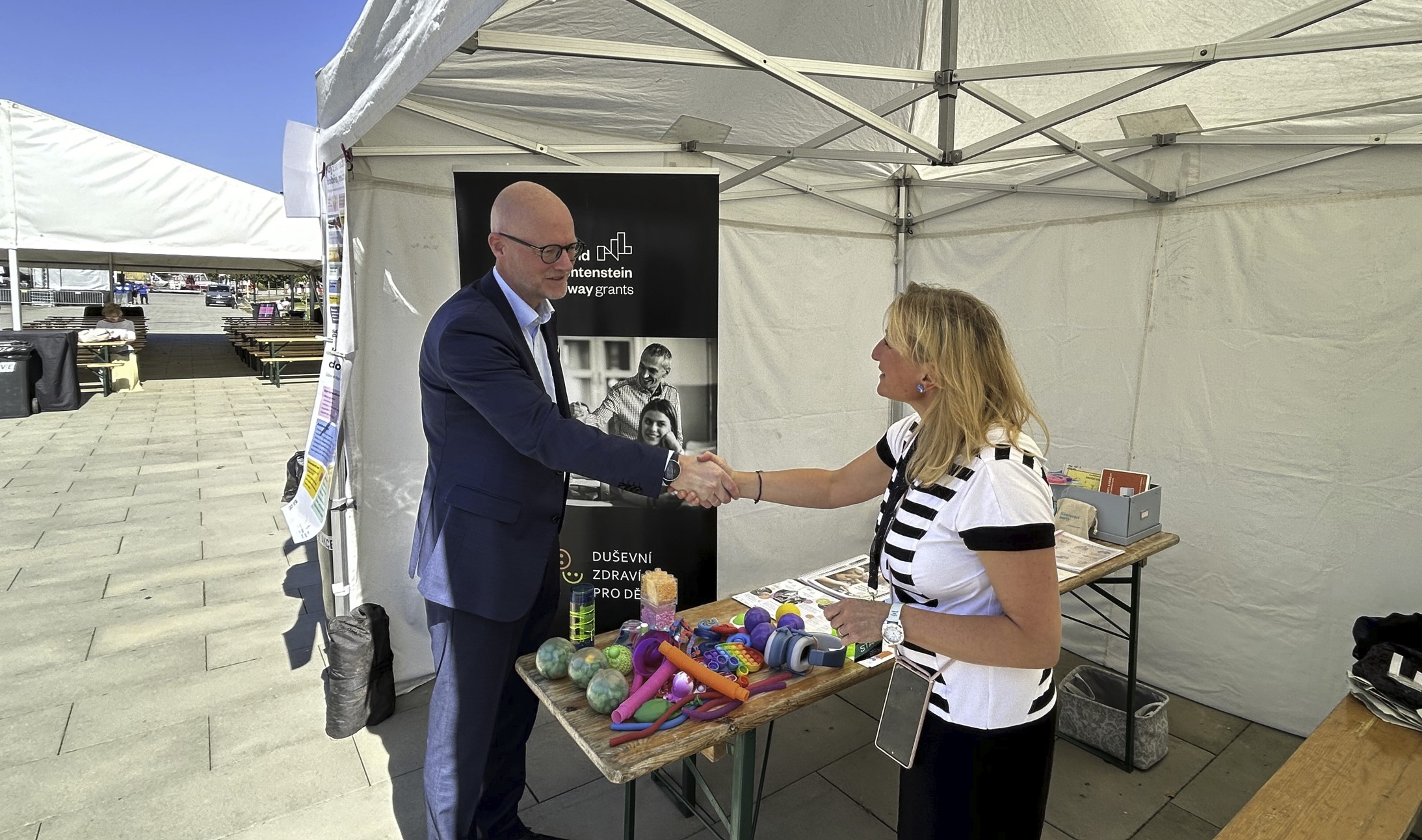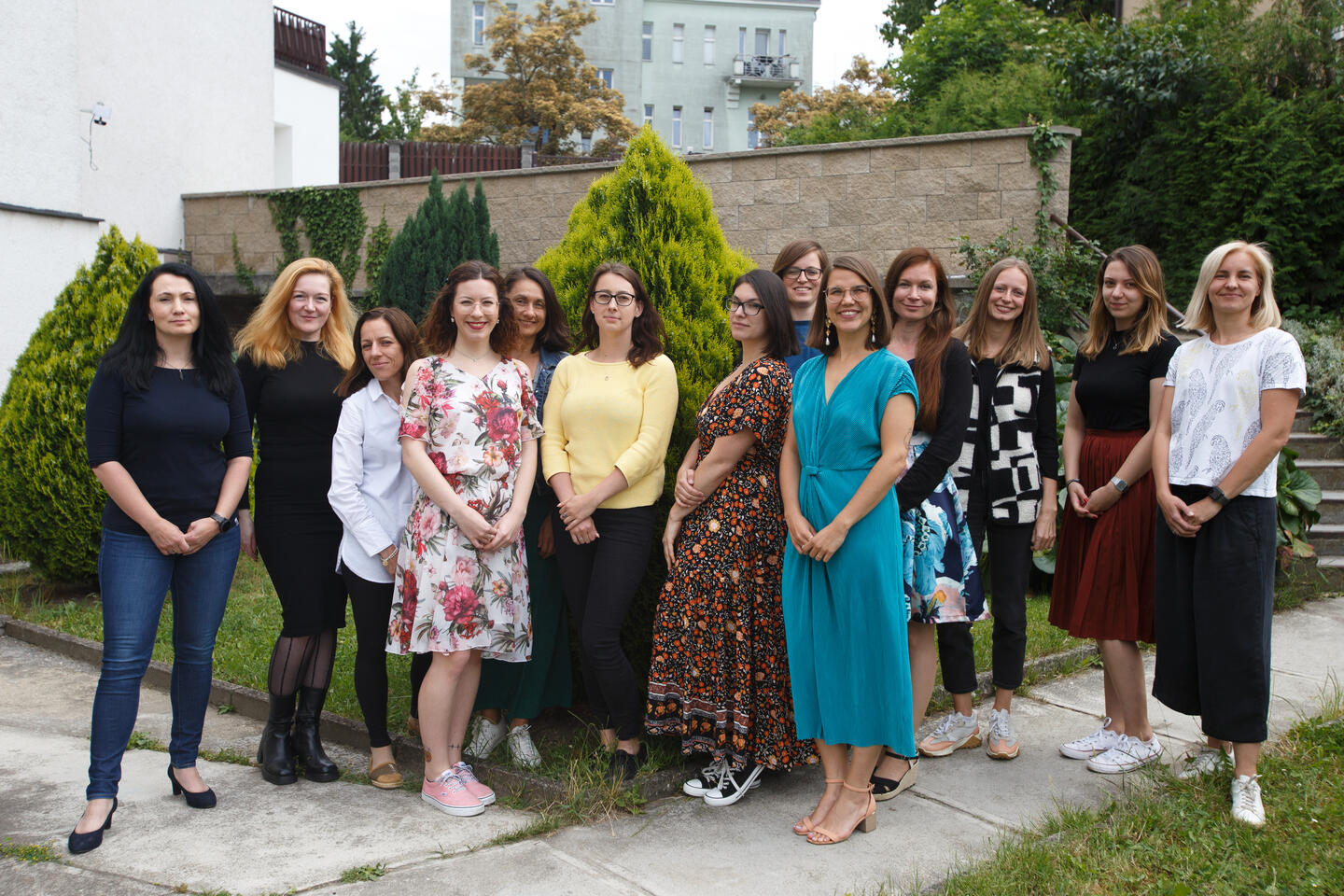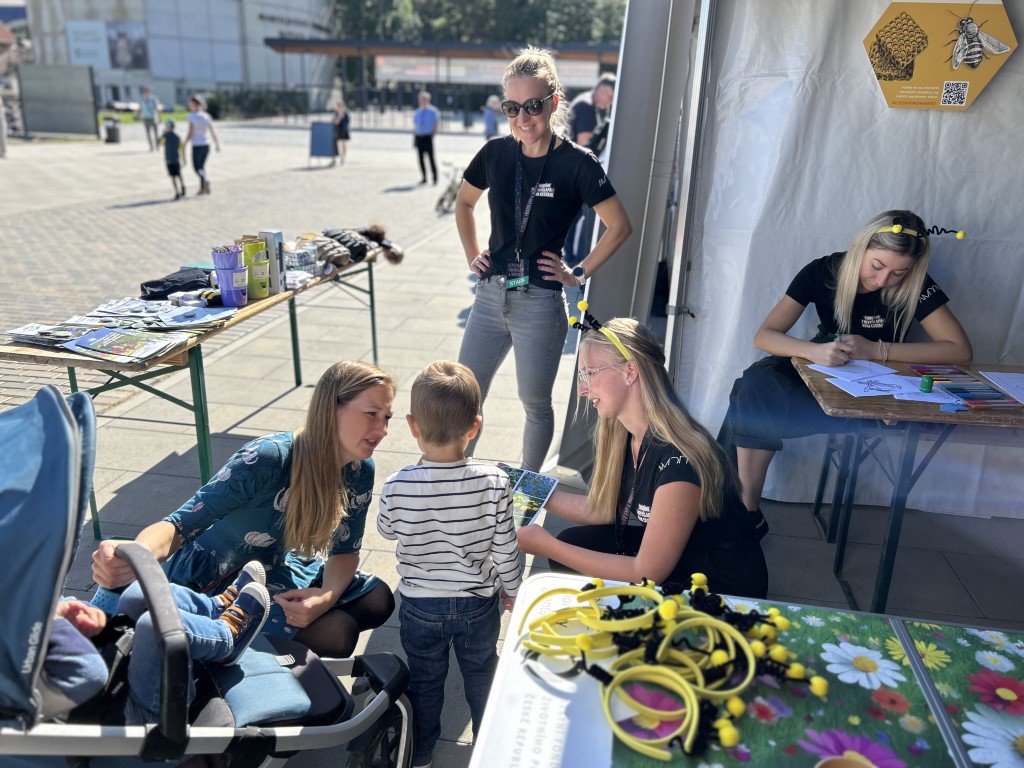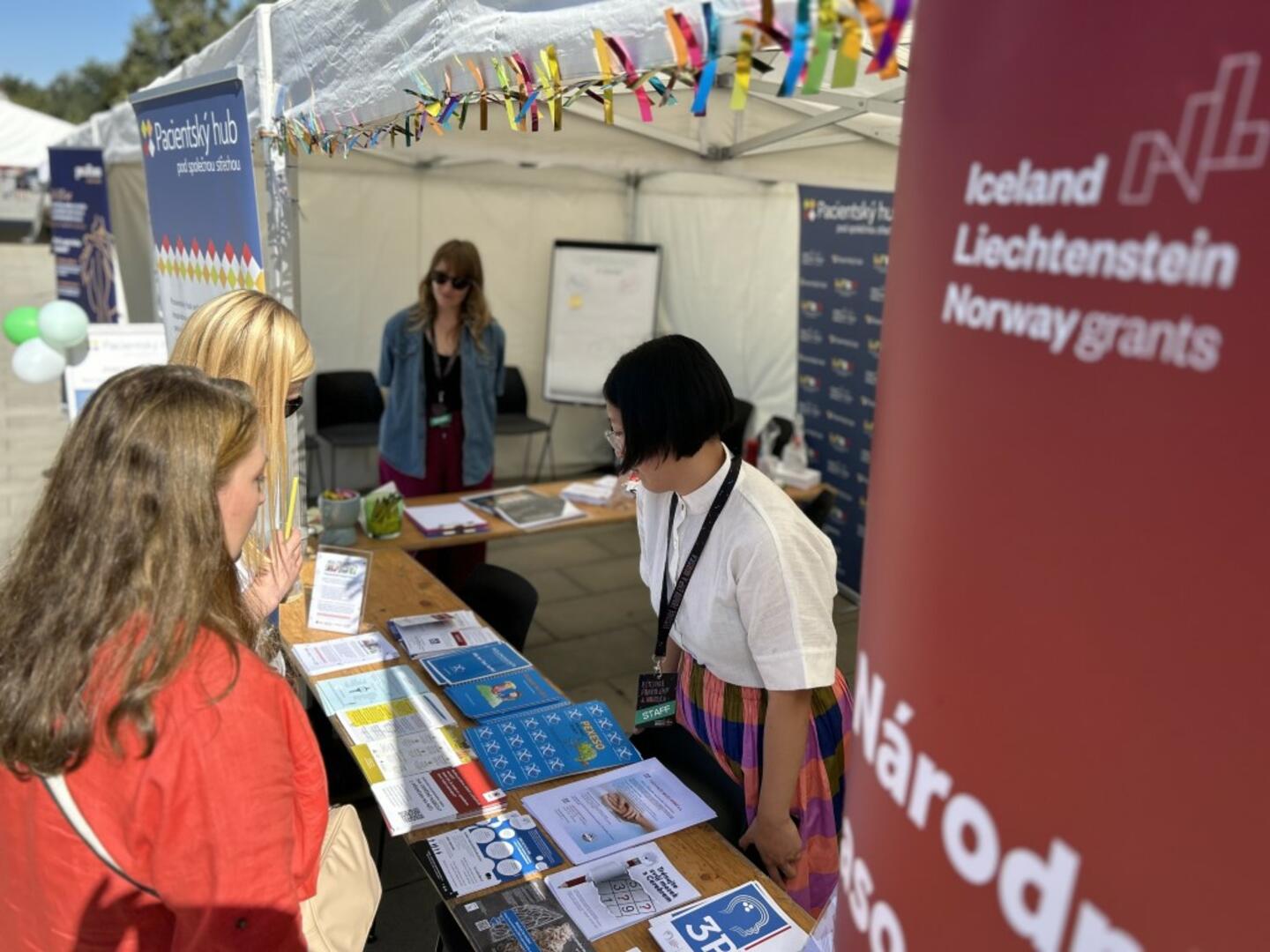My name is Dimitra Fellner, and I have been the Country Officer for the cooperation with Czechia since 2020. I couldn't be happier to see so many great examples of this partnership. What struck me from the beginning was the thoroughness and accuracy with which our Czech colleagues work on the EEA and Norway Grants. My main point of contact is the National Focal Point in the Czech Ministry of Finance. The dedicated team of experienced leaders in Prague does not only know every legal, technical and financial detail related to the implementation of the Grants, they also seem to take real pleasure in seeing the results of their work. Each year, with enthusiasm and a healthy sense of pride, they present to the Donor States - Iceland, Liechtenstein, and Norway - the outcomes of their efforts in the many projects being carried out across Czechia.
Since 2004, when Czechia joined the European Union, the EEA and Norway Grants have been operating there to reduce social and economic disparities and to strengthen bilateral cooperation between Iceland, Liechtenstein, Norway and Czechia. During the 2014-2021 funding period, we invested over €170 million in Czechia. With this funding, we supported 11 programmes, ranging from civil society and research to environment, human rights, culture and good governance – just to name a few. Several programmes specifically focus on promoting Roma inclusion and empowerment. A notable success in this area was the opening of the Roma Holocaust Memorial in Lety earlier this year.
Over 800 projects have now been successfully completed with the support of the EEA and Norway Grants across Czechia. Several more bilateral initiatives will be carried out until the end of April 2025. All these projects uphold the fundamental values of democracy, good governance and the rule of law. Our funds are the largest single source of funding for civil society organisations working to promote these values. Increasing social inclusion and countering disinformation are key aspects of these efforts. Building on the strong bilateral relationships developed over the years, the EEA and Norway Grants have also provided support to help Czechia with the integration of Ukrainian refugees.

Every year, the Donor and Beneficiary States hold an “Annual Meeting”. This is an excellent opportunity to exchange experiences and expertise between the countries, as well as to discuss the concerns of the Donor states. For example, while the international community had hoped to see the "Istanbul Convention"— the Council of Europe Convention on preventing and combating violence against women and domestic violence — ratified by all Beneficiary States, politicians in Czechia have still not reached an agreement on this.
Nevertheless, the EEA and Norway Grants are supporting victims of sexual and domestic gender based violence. I was deeply impressed by the dedication and expertise of the colleagues from ProFem, a civil society organisation that has established a fully-fledged support centre, “PORT”, in Prague. This unique center is modeled after similar comprehensive support services available in Norway and Iceland. I was also impressed by the Czech-Norwegian research team that developed biodegradable machine oil from vegetables, preventing ships from polluting the ocean. A landlocked country like Czechia was able to contribute to this effort, thanks to their innovative research skills. Without the support of the EEA and Norway Grants, such bilateral collaborations would likely not happen.
 proFem's journey of change in the Czech Republic – find out more here: ProFem
proFem's journey of change in the Czech Republic – find out more here: ProFem
There are also many projects related to good governance – a topic I am particularly interested in. With the support of the EEA and Norway Grants, Czechia was able to request the Organisation for Economic Cooperation and Development (OECD) to conduct a Public Governance Review. This thorough study, which includes concrete recommendations on how to improve the efficiency and effectiveness of public administration, had been under discussion for almost twenty years before it was finally realized with the support of the Grants. Over several months, experts from the Public Governance Directorate of the OECD and experts from across Czechia's administration and civil society organizations, examined bottlenecks, potential efficiency gains, and areas for improvement and modernization in the governance system. In March 2023, the Secretary General of OECD and the Czech Prime Minister presented the findings together with the Biannual Economic Survey of Czechia. Following this, expert meetings were held to determine which recommendations should be prioritized for implementation. Looking back, we can say that many positive results — and some unexpected synergies — were achieved.

The expertise and experience of our Czech partners in managing the EEA and Norway Grants is invaluable. Many of the colleagues in Czechia have worked with the Grants since they first began investing in their country. What was presented at the EEA and Norway Grants festival is a testimony of seven years of dedicated work in cooperation with experts from Iceland, Liechtenstein, and Norway to reduce social and economic disparities and strengthen bilateral cooperation. Yet, many more project results are still to come.
For the funding period 2021-2028, the EEA and Norway Grants will invest 225,2 million Euro in Czechia. Our priorities include the European green transition, democracy, rule of law and human rights, social inclusion, and resilience. Get inspired by the results we present today and stay tuned for where our future cooperation with Czechia will lead.
Find out more about the EEA and Norway Grants in the Czech Republic here.
